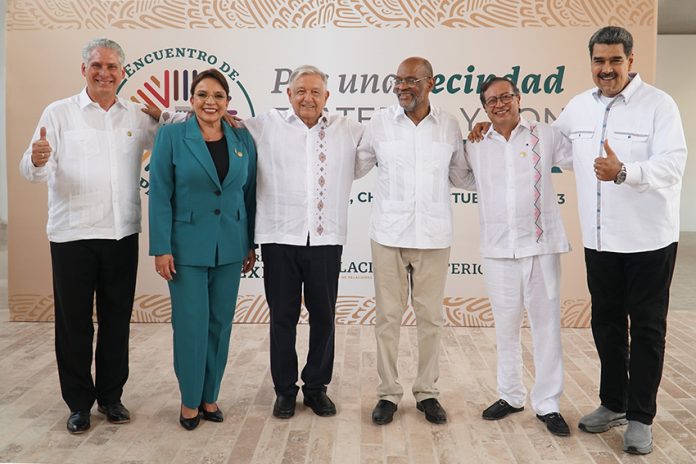The federal government’s employment programs could be rolled out across multiple Central American, South American and Caribbean countries as part of a plan agreed to by the participants in a regional migration summit in Palenque, Chiapas, on Sunday.
The governments of 10 countries, including those of Mexico, Venezuela, Cuba and Colombia, also sent a clear message to the United States in a joint statement issued at the conclusion of the summit: “lift unilateral coercive measures imposed on countries of the region,” such as the embargo against Cuba that has been in place for over six decades.
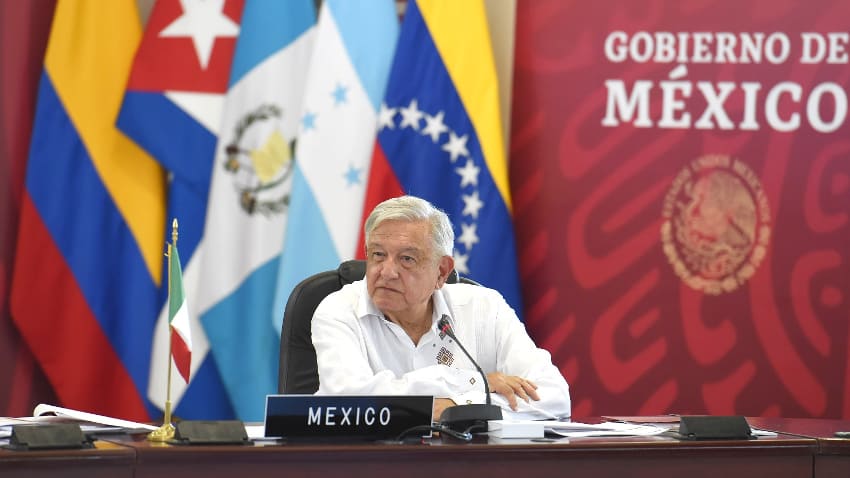
President López Obrador, who convened the “Palenque Meeting for a Fraternal Neighborhood with Wellbeing,” was joined by four other presidents – Xiomara Castro of Honduras, Gustavo Petro of Colombia, Miguel Díaz-Canel of Cuba and Nicolás Maduro of Venezuela – Haitian Prime Minister Ariel Henry, and high-ranking officials from El Salvador, Costa Rica, Belize and Panama.
Representatives of Guatemalan president-elect Bernardo Arévalo also attended the summit, but Guatemala wasn’t one of the 10 countries that issued the joint statement. Ecuador was invited, but no officials from that country made the trip to Chiapas.
The governments of the United States and Canada asked to attend the meeting as observers, but their request was rejected, according to an El País newspaper report.
What was the purpose of the summit?

López Obrador announced Oct. 9 that he had invited the leaders of Ecuador, Colombia, El Salvador, Honduras, Belize, Guatemala, Venezuela, Haiti, Cuba, Costa Rica and Panama to a migration meeting in Palenque “because they are the countries that have the most involvement in everything related to migration,” either because large numbers of their citizens are leaving or because they host migrants as they pass through en route to Mexico and the United States.
He said earlier this month that the aim of the summit was to reach agreements “to attend to the migration phenomenon while respecting human rights, providing options [and] protecting migrants.”
“… We need to come to an agreement because we can do a lot of things. And also, if we agree, we can seek the cooperation of the United States government, ask them to help. They already are, but they should apply themselves more to attending to the causes [of migration], and not just think about walls, about militarizing the border,” López Obrador said.
The summit was held as large numbers of migrants continue to travel through Mexico to the United States border, where they either attempt to enter the U.S. illegally or present themselves to immigration authorities with the hope they will be allowed in legally.
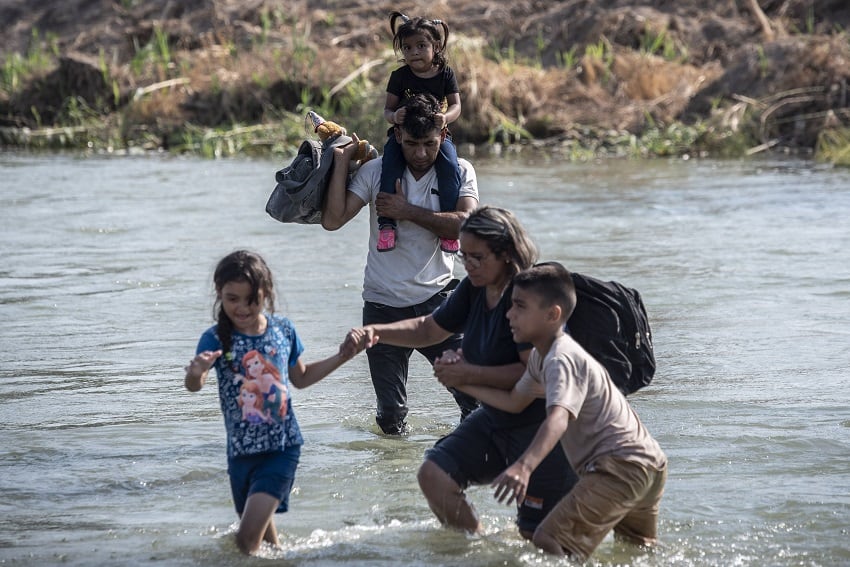
United States authorities made a record high of more than 2.4 million apprehensions of migrants near the Mexico-U.S. border in the 2023 fiscal year, which ended in September.
What were the key outcomes of the meeting?
The 10 countries agreed to 14 points to “jointly confront the migration reality” they face.
Before the points were outlined in a joint statement, the nations identified “political, social and economic” factors as well as “the negative effects of climate change” as being the main “structural causes” of migration.
They also said that “external factors such as indiscriminate unilateral coercive measures negatively affect entire populations and, to a greater extent, the most vulnerable people and communities.”
The first and most elaborate point agreed to by the 10 countries was to draw up “an action plan for development … to attend to the structural causes of irregular migration in the region.”
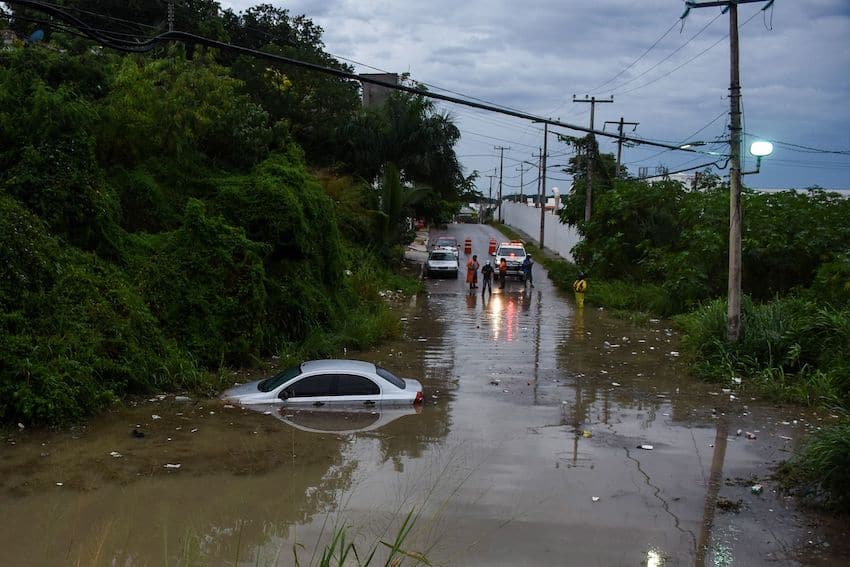
The nations identified seven “priority areas” for the plan:
- Self-sufficiency and food sovereignty.
- Protection, conservation and restoration of the environment.
- The provision of “decent” employment and education opportunities.
- Energy security, including through renewable sources.
- Self-sufficiency in health matters
- Trade and “intra-regional investment for socio-economic development.”
- Security cooperation, including on the fight against transnational organized, human trafficking and corruption.
Mexico is poised to play a leading role in the plan, according to the joint statement, which said the Mexican government will immediately offer “cooperation and technical assistance in these areas” to the other countries.
The Mexican government is set to advise its regional counterparts on the implementation of its Sembrando Vida (Sowing Life) reforestation/employment program and its Jóvenes Construyendo el Futuro (Youth Building the Future) apprenticeship scheme, according to the statement.
López Obrador asserts that those programs, which have already been rolled out in Honduras and El Salvador, can help stem northward migration. He frequently says that migrants don’t leave their countries “for pleasure,” but due to necessity stemming from a lack of economic opportunities.
The joint statement said that Mexico will also offer its cooperation on oil, gas, electricity and renewable energy matters, and on a “platform of regulatory harmonization” for the creation of a Latin American and Caribbean medications agency.
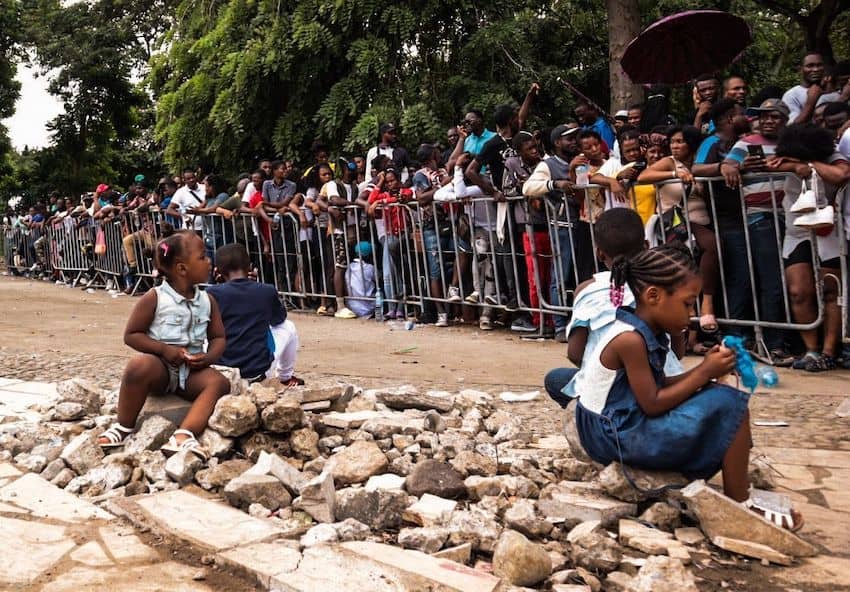
Among the other 13 points agreed to by the 10 countries was one to “urge” the removal of “unilateral coercive measures imposed on countries of the region” given that “they are contrary to international law and have serious repercussions beyond the target countries.”
The statement didn’t name the United States, but it was clear that was the country it was referring to. López Obrador has repeatedly called on the United States to lift its trade embargo on Cuba, while the U.S. has also imposed sanctions on Venezuela, although those on the South American country’s oil sector were eased last week after the Venezuelan government and opposition parties reached an agreement for next year’s election.
Additional key points outlined in the statement were agreements to:
- Call for “countries of origin, transit and destination” to implement “comprehensive migration policies that respect the human right to migrate.”
- Call for “destination countries” – the United States and Canada, for example – to adopt migration policies and practices “in accordance with the current reality of our region” and to avoid “inconsistent and selective ones,” such as the “regularization” of people from “certain countries.”
- Support Haiti with the aim of “reestablishing an environment of human safety” and normalizing “the political, economic and social situation” in that country, the poorest in the Americas.
- Promote “coordinated efforts” aimed at sovereign debt relief, “for the purpose of allowing countries … to obtain greater levels of development, close social gaps and reduce the intention to migrate.”
- Ask destination countries to expand “regular, orderly and safe” options for migration.
- Propose to the governments of Cuba and the United States that they promptly hold “comprehensive” talks on their bilateral relationship.
What did the leaders say?
López Obrador pointed out during the summit that funding provided by the United States government for development projects in Western Hemisphere nations is easily exceeded by the resources it allocates for “armaments for wars,” such as those between Ukraine and Russia, and Israel and Hamas.
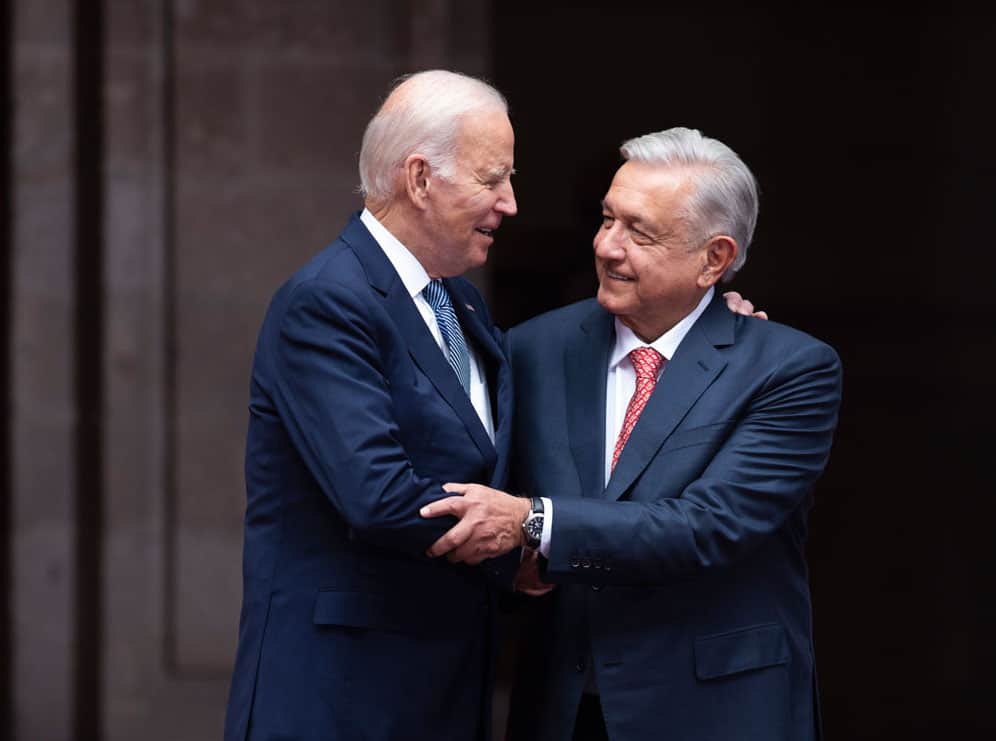
“We cannot wait for substantive initiatives to be taken by the United States government. We have to act [on the migration issue] and we can do it, we can help each other,” he said.
On the X social media site, López Obrador described the meeting as “very productive” in a post that included a video showing him touring the Palenque archaeological site with other leaders and officials.
On Monday, he said he would raise the issues discussed in Palenque with U.S. President Joe Biden when he meets with him in San Francisco next month during the Asia-Pacific Economic Cooperation Leaders’ meeting.
Speaking to the press at the conclusion of a summit marked by considerable anti-United States sentiment, President Maduro took the opportunity to rail against “criminal, immoral” sanctions imposed on Venezuela by the U.S. government.
He characterized the sanctions as the biggest driver of migration out of Venezuela and asserted that large numbers of Venezuelans would return to the country if they were lifted.
Maduro said that he received unanimous support from the other countries represented at the summit for the “complete and permanent lifting” of “more than 930 illegal sanctions.”
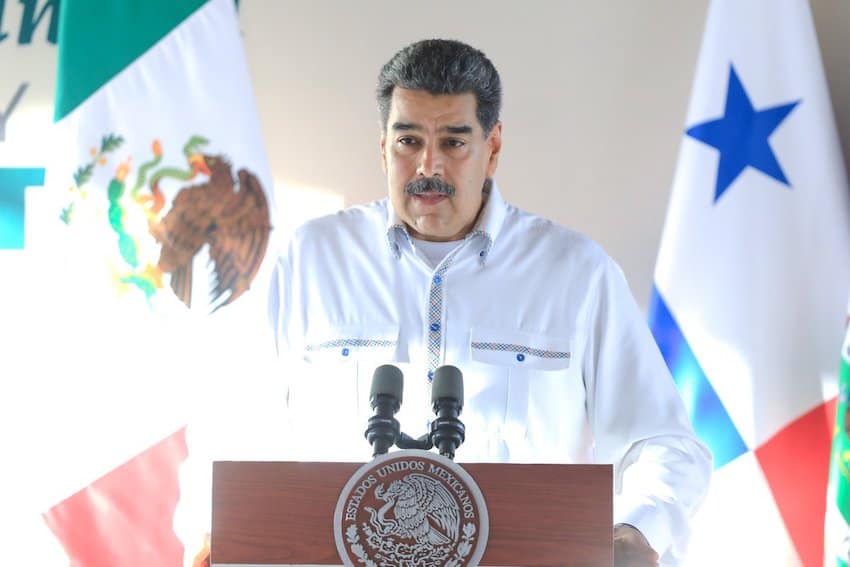
“Lift all the sanctions … without extortion, without blackmail, without conditions and Venezuela … in less than a year will be reversing all the causes [of migration],” he said.
On X, President Díaz-Canel asserted that the United States incites “the irregular migration of Cubans” with its “measures of economic suffocation” on the island nation and “facilities for migrants from our country.”
“This conduct affects Cuba, Cuban migrants and the United States and has consequences for countries of transit in the region, which face their own irregular emigration challenges,” he wrote.
“We reiterate the firm commitment of Cuba to regular, safe and orderly migration.”
With reports from El Universal and El País
